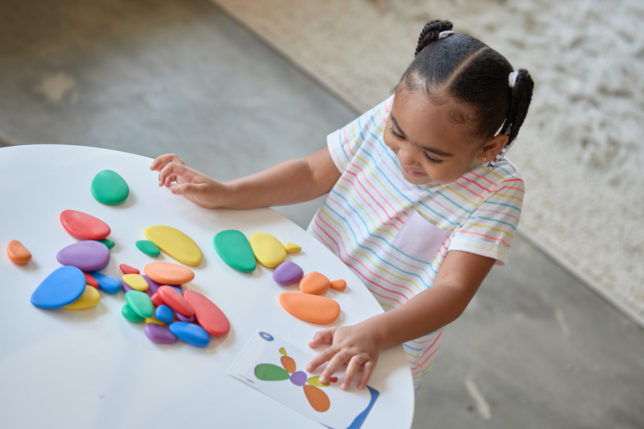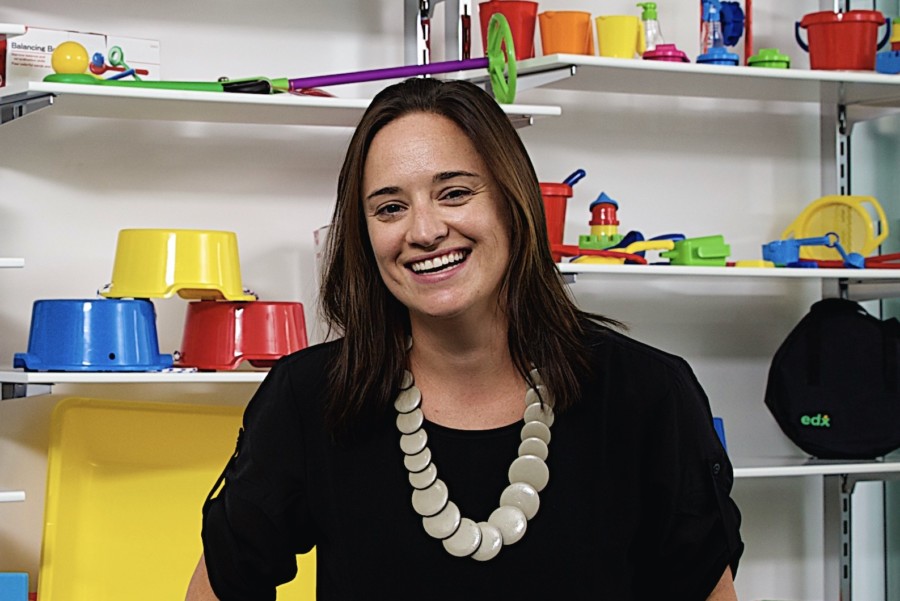By Heather Welch – International Brand Manager at Edx Education.
With new routines, learning at home may feel like a marathon to the finish line. And it seems to consume so much time…
But fear not – as parents and caregivers – we are able to supercharge this non-classroom experience and complement the school-time learning. Supercharging the learning experience need not be the chore that it sounds and often feels.
While there is genuine cause for concern for children and their lost learning, it is good to remember that for the Early Years and Key Stage 1, the most effective way to supplement learning is through play-based educational activities.

Historically, play may not have come across as effective learning. But there is a lot going on when children are playing: imagination is sparked by play as they enjoy exploring and experimenting. We refer to it as learning without realising or learning through play.
Numerous studies have shown that children who have been taught through play-based learning have a more positive attitude to learning, a wider vocabulary and advanced problem solving, lateral thinking and analytical skills.
So let’s look at five easy ways to supercharge our children’s home-schooling experience:
Let Children Play
When children are not in the mood to play independently you can set up simple play activities. For example, you could set up animals ‘in a jungle’ to complement a book you are reading, then talk to them about the story, prompting them to use their imagination.
To encourage this at home, try using open-ended and design-thinking toys (like building blocks) to encourage problem-solving. Prompt your children by asking questions or giving them themes like building the tallest tower, design new roads or new animals.
Motivate and accommodate
Positive energy around the things that a child enjoys will make life easier for all. In the early stage of motivating your children, one of the most important things is following the lead of their interests whether it be cars, books, blocks, colours, shapes, the garden, unicorns or dinosaurs… So, take the time to watch your child play, as this is where the adventure begins.
It is also important to spend uninterrupted time with your child each day and to let them know when you will be available to accommodate them in your day so they can confidently play independently knowing quality time with you is just around the corner.
Opportunity – Think outside the box
Knowledge is taught from the curriculum at school, however ‘learning through experience’ is equally important. We refer to this as experiential learning. Give children experiences or opportunities not taught in the classroom. Children are naturally curious about the world surrounding them, so let’s make it fun, hands-on and an engaging experience.
Look at nature, explain life cycles, numbers around you and what they are used for. What is a postcode used for, letterbox numbers, money and supermarkets? Talk about the importance of recycling, then how it affects the climate and what we can do to help. Then discuss what they do and how it benefits us in everyday life. Cook together in the kitchen – children love to be involved and then create magic – bake muffins, decorate them as their favourite animal, while also developing maths and science concepts.
Communication
The benefits of communication can sometimes be overlooked, and can be hard to hone with smaller children with less language skills.
Whether it is setting up a play activity, or talking to them about their day after school, having a meal together or taking time out and watching them and stimulating their play with open-ended questions, this is all valuable time together.
Reading a book before bed is also great: it helps to stimulate speech and language development, makes them curious and gives time for parents and caregivers to connect with their child.
If you have caregivers like grandparents who are not able to see your children, record a video call of them reading a book, then play it whilst little one follows along at home with the same book so they can hear the story and turn the page.
It’s not surprising that words stimulate better communication and close bonding.
Mental Health & Wellbeing Through Play
Wellbeing is a key concern for parents: it is hard to be isolated from regular support networks like school, grandparents, regular clubs and routines.
Play is a way for children to continue to develop social and emotional skills during these times of social distancing. Children will show how they are feeling through play; they may not be able to articulate their feelings through speech, however through play they can show you if they are happy or angry, say. And then it’s your turn to respond accordingly and calmly.
Let’s encourage play-based learning for children in the early years, focussing on a hands-on experience in a fun and interactive way to develop lifelong learners.
About the expert
 Heather Welch is a play advocate, educator, marketer and current International Brand Manager at Edx Education. She has lived and worked all around the world: in Australia, Singapore, UAE and now the UK. Heather completed her Masters in Business & Technology, and originally trained as a primary school teacher. Right now, she develops educational toys for children to spark their imagination and learn from one another.
Heather Welch is a play advocate, educator, marketer and current International Brand Manager at Edx Education. She has lived and worked all around the world: in Australia, Singapore, UAE and now the UK. Heather completed her Masters in Business & Technology, and originally trained as a primary school teacher. Right now, she develops educational toys for children to spark their imagination and learn from one another.
Edx Education have a play blog on the website, podcast, games and videos and free downloadable resources for happy home learning in the Teachers/Parents section over at www.edxeducation.com/teachers/parents

